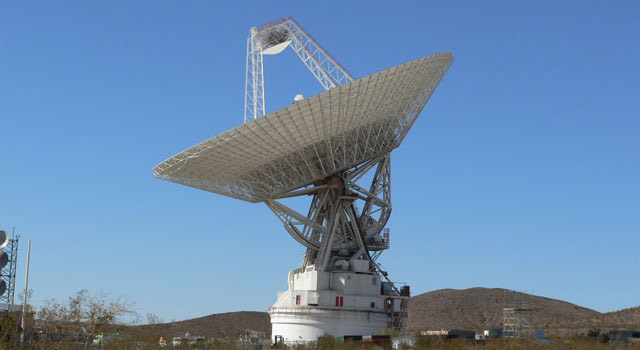NATIONAL HARBOR, Md. — The deadly wildfires burning across Los Angeles have caused widespread devastation across Southern California, and their impact has managed to reach beyond Earth.
The fires have been relentlessly ravaging homes and infrastructure for the last several days and, at one point, they also threatened NASA’s Jet Propulsion Laboratory in Pasadena. This forced the space agency to evacuate the iconic laboratory — leaving the Caltech-managed mission control center for the Deep Space Network, aka NASA’s communications hub for missions to Mars, Jupiter and other solar system destinations, empty for the first time since it opened its doors in 1963, NASA officials said Monday (Jan. 13).
“Our hearts and minds go out to our colleagues at JPL, at Caltech, at UCLA and various other institutes out there that are really struggling,” Nicola Fox, NASA’s associate administrate for science missions, said in a NASA town hall event at the 245th American Astronomical Society meeting. “I know that many of us have friends who’ve lost houses; who’ve lost their homes.”
Yet, amid that turmoil, the teams that run Deep Space Network, or DSN, managed to keep communication lines open to NASA’s spacecraft, rovers and probes as they continued to explore their designated corners of the solar system.
“Our incredible DSN team has gone above and beyond to ensure that not a bit of data has been lost,” Fox said. “It was a very emotional thing, the first time in the 60 years that nobody was actually in the mission control office there at JPL, because they had to relocate to the emergency center.”
NASA’s Deep Space Network, which celebrated its 60th anniversary in 2023, uses three large radio antennas in different locations around the world to maintain a steady flow of data, telemetry and communications with the agency’s space missions. Those antennas are based in Goldstone, California; Canberra, Australia; and Madrid, Spain — if you’ve ever watched NASA scientists wait with bated breath for the first signal from a Mars rover after landing, that signal reached Earth via the Deep Space Network.

NASA evacuated JPL last week as wildfires threatened the facility, but the space center appears to have weathered the crisis in good shape. The fires have killed at least 16 people and left thousands others without homes, according to media reports.
“NASA JPL is untouched by fire due to the brave dedication of our first responders,” JPL director Laurie Leshin said in a post on the social media site X on Jan. 10. “But our community has been very seriously impacted with over 150 JPLers who have lost their homes and many more displaced.”
Here in Maryland, Fox praised the American Astronomical Society for refunding registration fees to would-be attendees affected by the fires in Los Angeles. NASA, she added, has also relaxed its deadlines for scientists currently writing proposals for agency funding, too.
“We are, as a leadership team, working on something to really help support our colleagues who are struggling in California,” Fox said. “I’ve got the leadership team working on the best way that we can remove at least the angst of looming funding deadlines.”
Fox also hailed those around Southern California who have offered more personal support to those displaced by the Los Angeles fires.
“I want to sort of really thank … the people who have opened their homes, to offer a temporary power and a shower kind of thing,” Fox said with emotion. “I know it’s a good thing that people have been offering, and just it’s amazing to see this incredible team.”









Leave a Comment